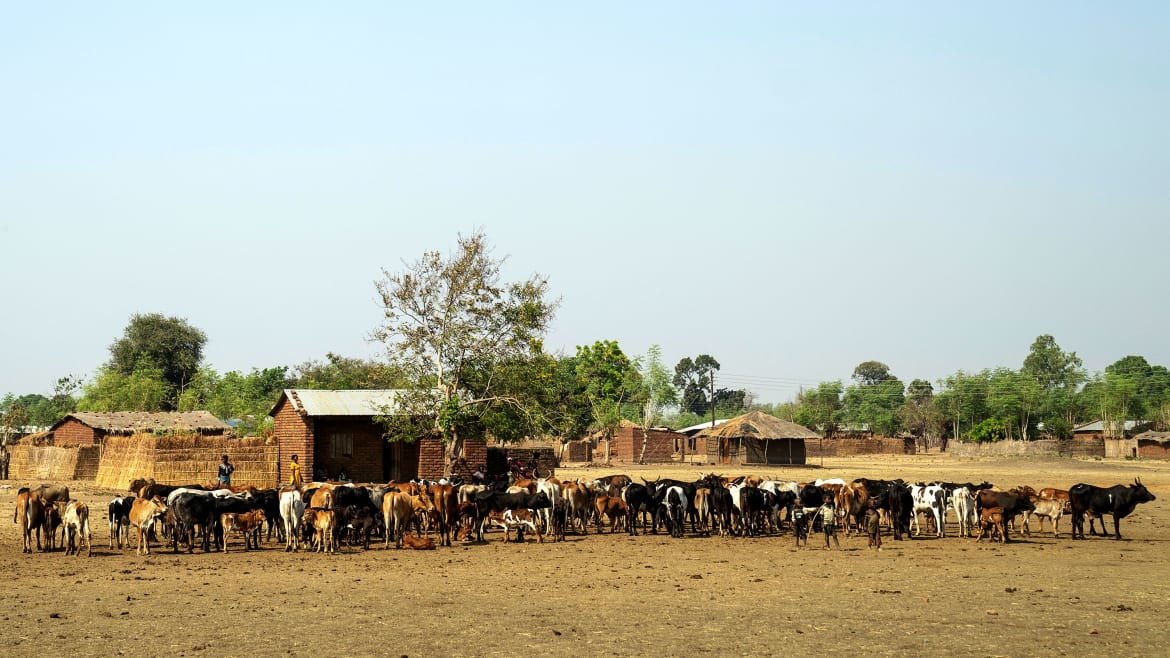Jane Barlow/PA Wire/Press Association via AP Images
Malawi is home to only 19.1 million people—a small population by any standard. Yet according to the U.N., more than 2.8 million Malawians currently face starvation—nearly 15 percent of the entire population. , Much of the reason, unsurprisingly, is climate-related: The country’s Ministry of Agriculture has stated that the production of corn—the country’s main staple food—dropped by 14 percent the previous year, as a result of severe drought and floods that occurred in many parts of the country due to climate change.
One of the poorest countries on Earth with over half of its population living in poverty, Malawi is no stranger to food crises. Nearly three-quarters of its people live on less than $1.90 per day. Agriculture is the country’s economic mainstay, with an estimated 80 percent of the rural population subsisting on farming. Climate havoc caused by human activity—from floods to droughts—can decimate crops, upending livelihoods as well as the ability to keep people fed.
It would be impossible to simply push Malawi’s people into a new kind of industry that is more resistant to climate-related changes; and people would continue to starve from a lack of available food. So the solution, instead, may be to switch up the agriculture system altogether and move away from corn itself.

